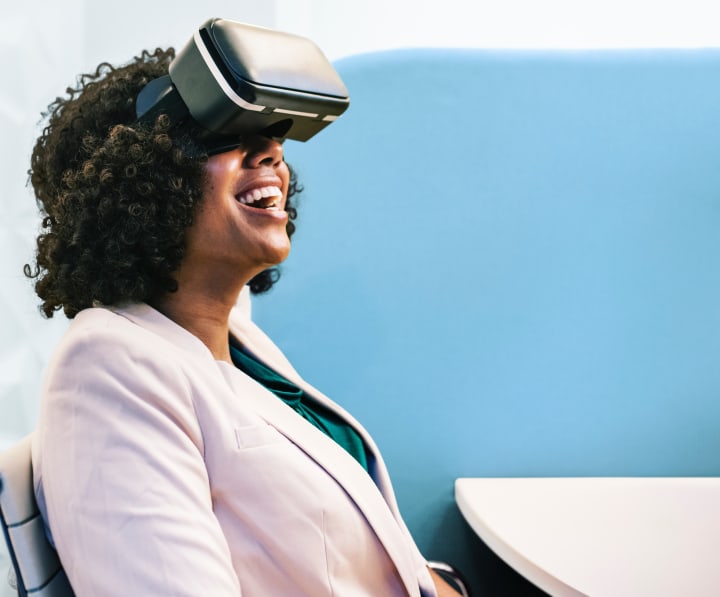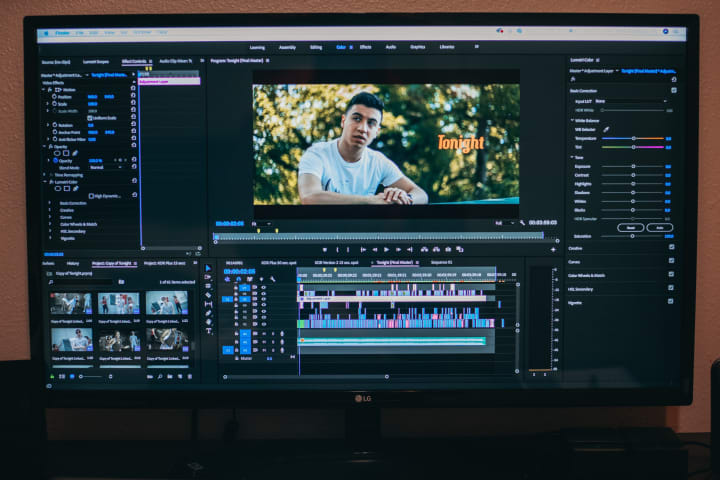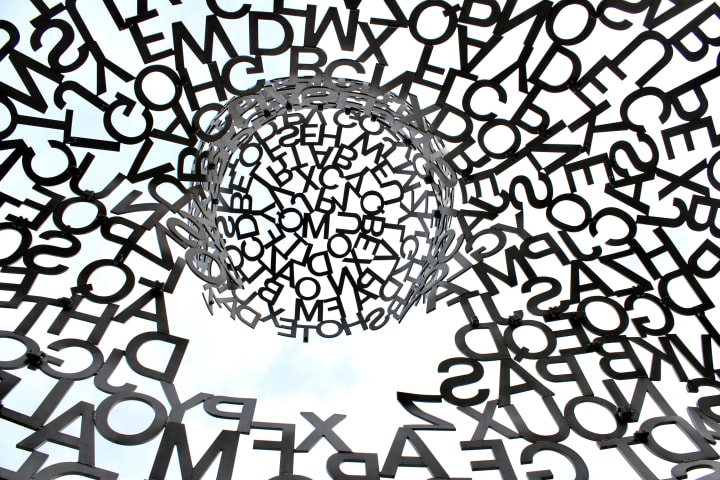10 Ways the Internet Is Changing Right Before Your Eyes
As it evolves, the ways the internet is changing affects not only the way people of the world act, but also the way they interact.

I don't think anyone would try to argue that the internet has done more harm than good for humanity. The internet has completely revolutionized the way we live and access vital information, and it has come with its fair share of consequences, both positive and negative. Every day, the ways the internet is changing right before our eyes evolves and changes, affecting all of us as well.
The internet has reduced our attention spans.

Photo by rawpixel on Unsplash
As humans spend more time connected to the internet, our obsession with speed has taken priority over just about everything else. Approximately half of internet users will give up on watching a video if it takes more than just ten seconds to load. This reduced attention span, which is almost surely related to the recent increase in worldwide internet use, is mirrored in other aspects of our lives as well. Take the film industry, for example: In the first half of the 20th century, the average shot length for English language films was about twelve seconds long. Today, that length has been reduced to two seconds. It's enough to make you wonder just how much shorter our attention spans can possibly become.
Internet addiction is now a thing.

This is a rough one to measure, as it's not like we can compare modern internet addiction rates to internet addiction rates from the 1960s. It has become evident, however, that internet addiction is a legitimate mental disorder. In fact, some researchers have estimated that as much as 6 percent of the population suffers from internet addiction. In some nations, notably China, there are special "internet boot camps" for those with addiction. These camps are controversial at best, with militaristic discipline being brought down among teenagers who are often sent to such camps by their parents against their own will. There is also at least one documented case of a teenager dying at such a camp.
It's a horrible time to be a hypochondriac.

Photo by rawpixel on Unsplash
Hypochondria is a sort of health anxiety that affects hundreds of thousands of people every year. Hypochondriacs develop obsessions with certain diseases and convince themselves that they are afflicted by serious and often extreme medical conditions despite outwardly displaying no symptoms of the disease. In the WebMD era, hypochondria is more rampant than normal. Any time someone has a headache or a sore throat or finds a new mole, they can search for these symptoms on their laptop or cell phone. Somehow, this inevitably ends up leading people to convince themselves they have some obscure form of cancer or other serious disease. Next time you feel sick, a licensed doctor is much more qualified to give you a diagnosis than a search engine.
Depression and social media are linked.

Photo by Micaela Parente on Unsplash
Unlike the many imagined afflictions experienced by hypochondriacs, depression is an all-too-common illness, with millions of cases every year. Depression appears to now be larger than ever before as people begin to understand the relationship between social media vs mental health. While some of this perception is likely due to the fact that historically, depression is often left undiagnosed or misdiagnosed. Part of the resurgence in depression diagnoses, however, is due to the affect social media websites like Facebook have on today's younger generations. Almost any time people pick up their cell phone or open up their laptop, one of the first things they tend to do is check their Facebook or other social media accounts. The nature of these websites has led to an obsession with external appearances that has a severely negative affect on the emotional state of anyone who spends too much time connected to the internet.
Streaming through webcams is connecting people worldwide.

Photo by Kyle Loftus on Unsplash
One of the more unexpected ways the internet is changing is through internet-connected video cameras, which stream any number of events in real time. These include anything from the profitable world of video game streaming, where a huge number of people pay to watch and listen to well-known expert gamers play through popular online PC and PlayStation games, to niche streams, like 24/7 video cameras underneath Loch Ness or a livestream of a rare flower as it prepares to bloom. The endlessly creative ways people utilize the internet for streaming purposes is one of the most fascinating ways the internet is bringing together people from around the world.
Social networking is a different landscape.

Photo by rawpixel on Unsplash
The business world has been completely affected by the internet. Thanks to business-oriented social networking websites like LinkedIn, the internet is changing the way people apply and recruit for jobs. Large corporations have latched on to the internet as a way to access a practically endless supply of low-paid, entry-level drones, including outsourced positions. This behavior takes advantage of a desperate, young workforce and screws over older, less adaptable workers. By providing a platform for this exploitation, the internet has indirectly contributed to the current debt crisis.
Multitasking is actually reducing our efficiency.

Photo by rawpixel on Unsplash
Those of us who grew up with earlier versions of the internet remember how revolutionary it was when internet browsers first introduced tabs to our browsing experience. (At least, I remember thinking it was revolutionary.) The introduction of internet tabs was just a precursor to the era of multitasking that the internet has brought us. Now, more and more people are left asking, "Are you a social media junkie?" As I'm writing this article, I have exactly ten tabs open, including two email accounts, a calendar, a spreadsheet, Wikipedia, and Google, in addition to a few other tools. As if this weren't enough to deal with, I also have multiple desktop windows on my MacBook that I'm scrolling between, including one with Spotify and one with my Messages app.
This technology is, like many aspects of the internet, a double-edged sword. While it is ridiculously convenient to have all of these resources at our fingertips, studies show that the increased multitasking we take on as a result actually has a negative impact on our efficiency, as well as our overall productivity. So maybe I should close a couple tabs...
Mobile internet has changed everything.

Photo by rawpixel on Unsplash
This is just a PSA reminder that smart phones and efficient mobile browsers have really only been around for a few years. I had a cellphone in high school, which already places me among the youngest generations, but I didn't have anything close to the level of access that just about everyone has today. Best I can remember, my flip phone technically had a browser, but there wasn't much I could do with it, as the screen was too small to see anything, and most websites weren't designed to accommodate mobile devices. By the time I graduated, several of my friends had early generations of smart phones, but it wasn't nearly the level of ubiquity smart phones have today.
This development is incredibly important in the brief history of the internet. In fact, I'd say that having access to the internet from your phone pretty much anywhere you go is the most important thing to happen to the internet since the invention of the internet.
Linguistic diversity is dying out.

Photo by Nathaniel Shuman on Unsplash
Another double-edged sword is the way the internet is changing how we communicate. Among thousands of unique languages and dialects in the world, only about 5 percent have made it to the internet—after all, only about half of the world has internet access right now. The upside to this is that we are now able to communicate with many people we otherwise never would have even met. Thanks to the internet, more people are learning other languages than ever before, and even those who only know one language can utilize translation apps to communicate with people across the world, regardless of their native tongue. The downside of this is that that other 95 percent of languages is rapidly dying out, and will be lost forever unless it can be recorded and salvaged by linguists and other researchers.
The internet is now at the center of many legal issues.

Photo by rawpixel on Unsplash
Despite a huge increase in regulations over the past decade or so, much of the internet is still pretty much the wild west in terms of what legal boundaries and protections there are. The crisis that is net neutrality is perhaps the most notable current issue, with activists and governments fighting over the legal right to access the internet without data discrimination. Other recent discussions include people's right to privacy on the internet, which became a hot-button issue when it surfaced just how much data websites like Facebook were collecting from their users. The limitless potential of the internet is changing the way citizens and politicians alike have to think about the law, and the internet will undoubtedly remain at the center of many future legal battles.
About the Creator
Joseph D. N. Kendrick
Writer of words. Haver of cats. joeykendrick.com






Comments
There are no comments for this story
Be the first to respond and start the conversation.